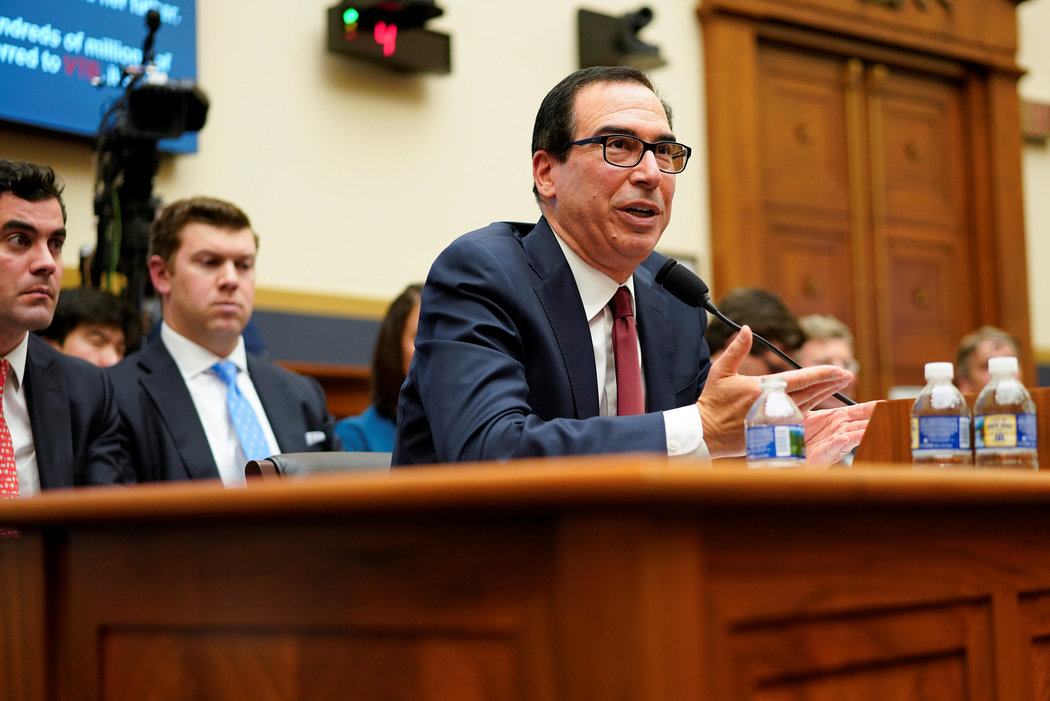
The New York Times reports, "As the United States and China edge closer to a trade agreement, the ability to reach a final deal is coming down to a central question: Will Beijing live up to its promises? Treasury Secretary Steven Mnuchin, in a CNBC interview on Wednesday, said that the countries had 'pretty much agreed' on an enforcement mechanism for a trade deal, adding that both sides would establish 'enforcement offices' to deal with continuing trade matters. But it remains unclear which provisions of the trade deal will be subject to enforcement and how much power the United States will have to punish Beijing if it reneges on the agreement. The ability to secure a firm commitment from China to hold up its end of the pact or face repercussions will be a key determinant in whether President Trump's trade deal is seen as a true win or a capitulation."
Reuters reports, "China's Huawei Technologies said on Thursday the security of its telecoms network equipment was as tight as any, and hit back at the U.S. government for briefing Washington's allies against it. Huawei, the global market leader, is the target of a campaign by Washington, which has barred it from next-generation 5G networks due to concerns over its ties to the Chinese government and says Western countries should block its technology. The issue is crucial because of 5G's leading role in internet-connected products ranging from self-driving cars and smart cities to augmented reality and artificial intelligence. 'We are probably the most tested vendor in the world,' Huawei's cybersecurity director Sophie Batas told journalists at its new cybersecurity center in Brussels. She criticized comments by Robert Strayer, U.S. State Department deputy assistant secretary for cyber, international communications and information policy, who told journalists on Wednesday that countries adopting risk-based security frameworks for 5G would lead to Huawei being banned."
- Bloomberg reports, "Any trade deal between China and the U.S. should comply with multilateral rules, and not doing so may create economic risks for the Asian nation's other major trading partners should China import less from them, the International Monetary Fund said. China committing to more American imports 'could be a negative impact on third countries whose exports to China would be crowded out,' IMF Asia-Pacific Director Changyong Rhee said Friday at a briefing in Washington. 'The agreement should be consistent with multilateralism, rather than bilateral,' he said. 'If the deal involved preferential access for the U.S. to Chinese markets, this could lead to broader worries about the future of the multilateral trading system.' The two biggest economies are still ironing out details of an agreement, which would likely include China making major purchases of American agricultural, energy, and other products to reduce the trade gap with the U.S."
- 2019-04-11 China Sweetens Its Cloud Offer in U.S. Trade Talks
- 2019-04-10 Trump Has a Message for the World: My Trade Wars Aren't Over Yet
- 2019-04-09 The EU and China Rescue a Plan to Present United Front to Trump
- 2019-04-08 Chinese woman arrested at Trump's Florida resort to remain in custody
- 2019-04-07 EU official confronts China on trade promises
- 2019-04-05 ‘Epic’ China Trade Deal Near Completion, Trump Says, but Haggling Continues
- 2019-04-04 Philippines' Duterte tells China to 'lay off' island in disputed waters
- 2019-04-03 China-U.S. Trade Talks Enter Crunch Period as Liu Arrives in DC
- 2019-04-02 Taiwan protests China jets crossing center of Taiwan Strait
- 2019-04-01 Taiwan condemns Beijing after Chinese jets cross maritime line
- The New York Times As U.S. and China Near Trade Deal, Enforcement Is Key
- Reuters Huawei says its equipment as secure as any, pans U.S. campaign
- Bloomberg IMF Warns of Potential Downside Risks From China-U.S. Trade Deal
- The Wall Street Journal China Chops Price for a Much-Criticized 'Belt and Road' Project in Malaysia
- CNBC A US-EU trade war would be a political and economic mistake, says French finance minister
- Reuters China warns Australia at WTO about 5G restriction
- Financial Times Malaysia to resume China-built Belt and Road rail project
- Bloomberg Trump's Trade War Is Hurting Farmers, But They Still Think He Can Win It
- CNBC China's March trade surplus soars past expectations, Beijing data show
- Reuters To spur rural development, China to send millions of students on 'volunteering' trips
- Bloomberg As China Trade War Cools, Japan Braces for Its Clash With Trump
- Reuters Furor over 'black hole' photo forces China's largest image provider to shut
- Bloomberg Charging to Use Image of Chinese Flag Was a Bad Idea for This Firm
- The New York Times 'Panda Diplomacy': A $24 Million Zoo Enclosure Angers Some
- Bloomberg How China Turned 350 Million Millennials Into Day Traders
- The Washington Post What, exactly, would a China trade deal accomplish?
- The Diplomat Britain Confronts the China Challenge
- The Washington Post China hawks call on America to fight a new Cold War
- The New York Times China's President: There's an App for That
- Foreign Policy A Win-Win U.S.-China Trade Deal Is Possible
